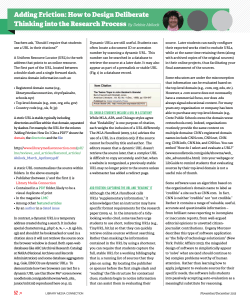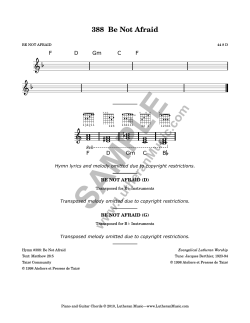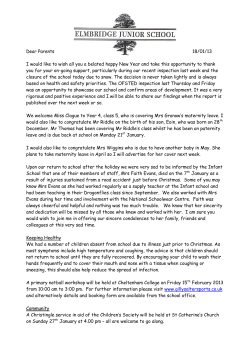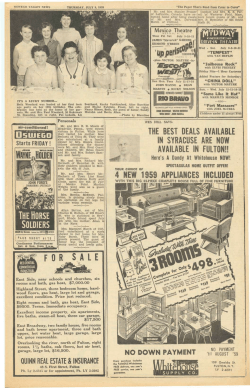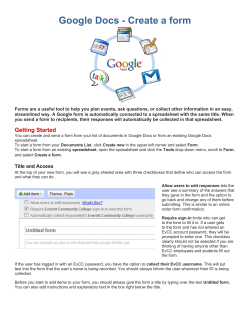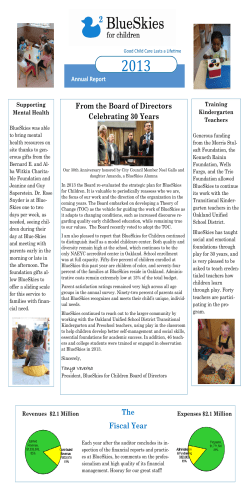
How to make a business phone call in English?
How to make a business phone call in English? Most of the people find it difficult to make business phone calls in a foreign language. Therefore, in order to make an effective phone call, you must prepare ahead. This will save you time and frustration. Remember that your voice at the end of the line will be the first impression of you. Thus, you need to conduct yourself in a professional manner when making business phone calls. Preparing for the business call: Gather all the information and suppliers you might need for the call: o The number and the full name of the person you need to speak to o Have a calendar, pen and paper at hand o Have your personal information at hand: phone number and address to reach you at, etc. Make sure you are in a quiet and comfortable environment. This means to turn off the TV, music devices and any other distractions; children and babies should be out of the room when you are making a business call. Think about what you need to accomplish with this call. Use notes (‘talking points’) to guide you through the facts and details you want to mention. This may be your only chance to get your point across. Making the business call: A business call has three main stages: introduction, middle bulk and an ending summary of the call. Introduce yourself or/and remind the person you are calling of your identity at the beginning of the call. Express gratitude. Always thank the potential client for allowing you a few moments in his/her busy day. (“I want to thank you for taking my call. This will only involve a moment of your time so you can get back to your busy schedule”). Make sure that the person you are calling is fully available to talk. If not, try to schedule an appointment for you to call back again. State the purpose of your call. Be clear and to the point. Do not allow the conversation to go into meaningless chatter. It is important to ask the other person to repeat what you are saying. In this way you will make sure that he/she fully understands what the conversation is about. Summarise the important points of the conversation and stress on each other’s responsibilities. End the call in a pleasant manner. Thank once again the other person for his/her time. Set an appointment for another call if it is needed, and wish him/her a good day. lingoking GmbH | Agnes-Pockels-Bogen 1, Munich Telephone phrases in English: Making a call Hello/Good morning/Good afternoon Can I speak to (name), please? May I speak to (name), please? I would like to speak to (name) please. I am trying to contact (name) This is (your name) from (your company’s name) … I am calling on behalf of Mr/Mrs/Ms (name) Can I have extension 629, please? (extension is an internal number at the company) Example: Hello, this is John Blare from lingoking. Can I speak to Mrs Brighten, please? Answering a call (your name) speaking (company name)(your name) speaking (your name) speaking, how can I help you? (company name)(your name) speaking, can I help you? Example: lingoking John Blare speaking, how can I help you? Excuse me, who is calling? I am sorry, who is speaking? Where are you calling from? Are you sure you have the right number? Can you please tell me (question)? Asking for more information Ask the speaker to wait Just a moment, please. Could you wait for a moment, please? Could hold on a second, please? Can you hold the line, please? Connecting someone Thank you for holding. I’ll put you through now. The line is free now. I’ll put you through. I’ll connect you now/I’m connecting you now Telephone problems The line is very bad. Could you speak up, please? Could you repeat that, please? I’m afraid I can’t hear you. I am sorry, I didn’t catch that. Could you repeat that again, please? I’m afraid we don’t have a Mr/Mrs/Miss (name) here. I’m sorry. There is nobody by that name. I’m sorry. I’m afraid you’ve dialled the wrong number. I’m sorry. I think you’ve got the wrong number. I’m afraid (name) is not available at the moment. I’m afraid the line is engaged. Could you call back later? I’m afraid he/she is in a meeting at the moment. Mr (name) isn’t in. (the office) Mrs (name) is out at the moment I’m sorry, Mr/Mrs (name) is out of the office today Number mistake How to reply when someone is not available. lingoking GmbH | Agnes-Pockels-Bogen 1, Munich Take a message Would you like to leave a message? Could I take a message? Would like him/her to call you back? Should I tell (name) who is calling? Could you give me your name, please? What is your number, please? Checking information Could you spell that for me, please? Can I just check that again, please? Could you repeat that, please? Leave a message Can I leave a message, please? Could you give him/her a message, please? Can you tell him/her that I called? Could you ask him/her to call me back, please? Things you must keep in mind when making a business call in English: It is important to use the right level of formality. If you are too formal, then the person might find it difficult to feel comfortable when she/he talks to you. Then again, if you are too informal, the person could think that you are rude. It is important to show politeness. Always use please and thank you or thanks very much whenever you ask for, or receive, help or information. Use words like would, could, may, please, etc. to show politeness. It is alright to use more informal English, such as okay, bye, no problem, as long as the overall tone of the conversation is polite. If you call native speakers in English, you might find it difficult to understand them. The business people tend to speak very quickly on the phone so you will probably need to slow them down: o Immediately ask the person to speak slowly. o Repeat each piece of information, such name or telephone number or any important data, as the person speaks. Then you automatically slow the speaker down. o Do not say you have understood the person if you have not. Ask him/her to repeat until you have understood. Also you can ask the speaker to rephrase it or you can simply say: “I am sorry, do you mean….(what you have understood)” Remember that it is not only important what you say, but how you say it. You must speak in a professional and friendly manner and at an appropriate pace. Holding over things makes it worse! Just do the call and you will feel much better. If after reading this, you still do not feel confident enough – you can always use lingoking :). Note: If you use the data in this short report, please reference it as www.lingoking.com (2010) “How to make a business phone call” Source: There are plenty of websites with helpful tips. These are the ones we used: About.com, “Telephone English – Important phrases”, URL: http://esl.about.com/od/businessspeakingskills/a/t_vocab.htm lingoking GmbH | Agnes-Pockels-Bogen 1, Munich BBC Learning English, “Telephone: language expert”, URL: http://www.bbc.co.uk/worldservice/learningenglish/business/talkingbusiness/unit1telephon e/expert.shtml eHow, “How to make a business call”, URL: http://www.ehow.com/how_2088810_makebusiness-phone-call.html Entrepreneur, “8 tips for a successful sales call”, URL: http://www.entrepreneur.com/sales/salestechniques/article78540.html http://www.learnenglish.de/telephone/phonephrases.htm Learn English Today, “Business English/Telephone”, URL: http://www.learn-englishtoday.com/business-english/telephone.html Leonetwork, “Common Telephone phrases when answering a business call”, URL: tolingo Translations, “Business-Englisch: Telefonieren”, URL: http://www.tolingo.de/de_c/ratgeber/business-englisch/telefonieren-1 wikiHow, “How to make effective business calls”, URL: http://www.wikihow.com/MakeEffective-Business-Phone-Calls lingoking GmbH | Agnes-Pockels-Bogen 1, Munich
© Copyright 2026







